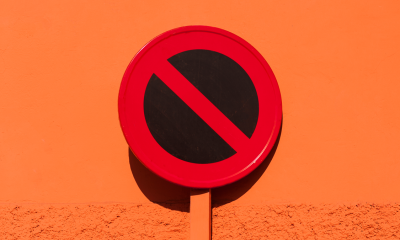Finance
Trump, China trade war: US tariff ease after midterm, business pain


President Donald Trump and Chinese President Xi
Jinping.
Business
Insider
- The US and China have been engaged in a trade war since July,
with tariffs flying back and forth. - But more recently, President Donald Trump has played up the
possibility of a trade deal with China. - Chinese and US officials have restarted talks, and
protectionist members of the Trump administration are being
sidelined. - Analysts say these are goods signs that the two sides could
strike a deal. - Trump and Chinese President Xi Jinping are scheduled to meet
at the G20 summit at the end of November.
After waging an increasingly escalating trade war against China
for months, it appears that President Donald Trump may be ready
to back down on his hardline stance — just in time for a meeting
with Chinese President Xi Jinping.
Trump and his administration have taken a softer tone toward
China in recent weeks, leading up to the meeting at the G20
summit in Argentina at the end of November.
Talks between the US and China have restarted, and some of the
more hawkish members of Trump’s economic team have been
effectively sidelined.
Analysts say the shift shows a possible willingness to strike a
deal with Beijing.
Talks thaw trade tiff
It’s been over four months since the US and China began to impose
tariffs on each other’s goods. So far, $360 billion worth has now
been subject to duties.
But after months of tough talk, multiple members of the Trump
administration — even
the president himself — have started to suggest a
possible deal.
The most significant sign that the US and China may actually come
to some agreement came late Wednesday, after reports surfaced
that
Beijing sent a letter to the Trump administration outlining
possible concessions.
The letter comes as
Chinese officials restarted trade discussions with their
counterparts in Washington. Trump and Xi held a formal phone call
on November 1 — the first substantial contact between the two
leaders in weeks.
And the internal dynamics within Trump’s economic team also seem
to favor progress on a deal.

Peter Navarro.
Andrew
Harnik/AP Images
Peter
Navarro — Trump’s uber-protectionist trade adviser who
also is the author of “Death By China” — was
reportedly
sidelined for the upcoming talks between Xi and Trump
following
inflammatory comments attacking Wall Street for allegedly
meddling in the US-China discussions.
“There are so many disputes between the two countries that
it will take many months to iron out a final deal, but last
night’s reports — and the apparent demotion of Navarro — are
positive developments, in our opinion,” Greg Valliere, chief
global strategist at Horizon Investment, said Thursday.
Stumbles inspire talks?
The administration hasn’t outlined the reason behind the sudden
shift in Trump’s trade strategy, saying only that the president
has always wanted a deal. But political and economic hits of late
may point to the cause.
The GOP was thumped in US House of Representatives elections in
what was seen, at least in part, as a repudiation of Trump. While
come observers thought that the loss
may light a fire under the president to push the trade war to
the next level, it may have had the opposite effect.
It’s unclear just how much of an effect the trade war had on key
races — according to
The Wall Street Journal, the GOP won 10 of 19
competitive House races with soybean production of over 2 million
bushels — but exit polling
showed that 29% of voters thought the tariffs hurt their
local economy, while 37% said it had no impact.
Some analysts also observed
that the solid economy helped blunt at least some of the
Democrats’ “blue wave,” and any long-term economic damage from a
drawn-out trade war could
undermine Trump’s strongest argument going into 2020.
 Jim
Jim
Young/Reuters
Several worrying economic sings could also have pushed Trump
toward a potential deal:
A détente is not a done deal
However, Michael Zezas, head of US public policy research at
Morgan Stanley, cautioned Thursday that further escalation of the
trade conflict is still the most likely scenario coming out of
the G20 meeting.
“To reiterate: The increasingly constructive tone is likely
masking ongoing, fundamental disagreements beneath the surface,”
Zezas wrote. “Hence, our base case remains that escalation of
trade tensions will continue.”
To Zezas’s point, the Trump administration has been going after
China — just not through tariffs — over the past few weeks. For
example, the Department of Justice has
brought charges against a slew of Chinese firms for
alleged economic
espionage over the past month and
launched a task force to combat those practices.
Trump’s unpredictability in international settings also has the
chance to throw a wrench into any good will. As noted by Chris
Krueger, a strategist at Cowen Washington Research Group, Trump
does not have
the best track record when it comes
to international meetings.
“It is somewhat surreal to state, but this meeting will be hugely
influenced by Trump’s mood and his previous performances at
foreign multilateral summits (G7, NATO, Paris trip last week)
have poor records of dealmaking (quite the opposite),” Krueger
said Thursday.
There is a lot of room for the trade war to get worse.
Trump has threatened to hit the remaining $257 billion worth of
Chinese goods not caught up in the conflict with tariffs — and
the 10% tariff on the $200 billion worth of Chinese goods
currently hit with restrictions is set to increase to 25% come
January 1.
-

 Business7 days ago
Business7 days agoFormer top SpaceX exec Tom Ochinero sets up new VC firm, filings reveal
-

 Business6 days ago
Business6 days agoConsumer Financial Protection Bureau fines BloomTech for false claims
-

 Business4 days ago
Business4 days agoLangdock raises $3M with General Catalyst to help businesses avoid vendor lock-in with LLMs
-

 Entertainment4 days ago
Entertainment4 days agoWhat Robert Durst did: Everything to know ahead of ‘The Jinx: Part 2’
-

 Business6 days ago
Business6 days agoKlarna credit card launches in the US as Swedish fintech grows its market presence
-

 Entertainment3 days ago
Entertainment3 days agoThis nova is on the verge of exploding. You could see it any day now.
-

 Entertainment7 days ago
Entertainment7 days agoHow to watch ‘The Sympathizer’: Release date and streaming deals
-

 Entertainment6 days ago
Entertainment6 days agoHow to set boundaries in the early stages of dating






















